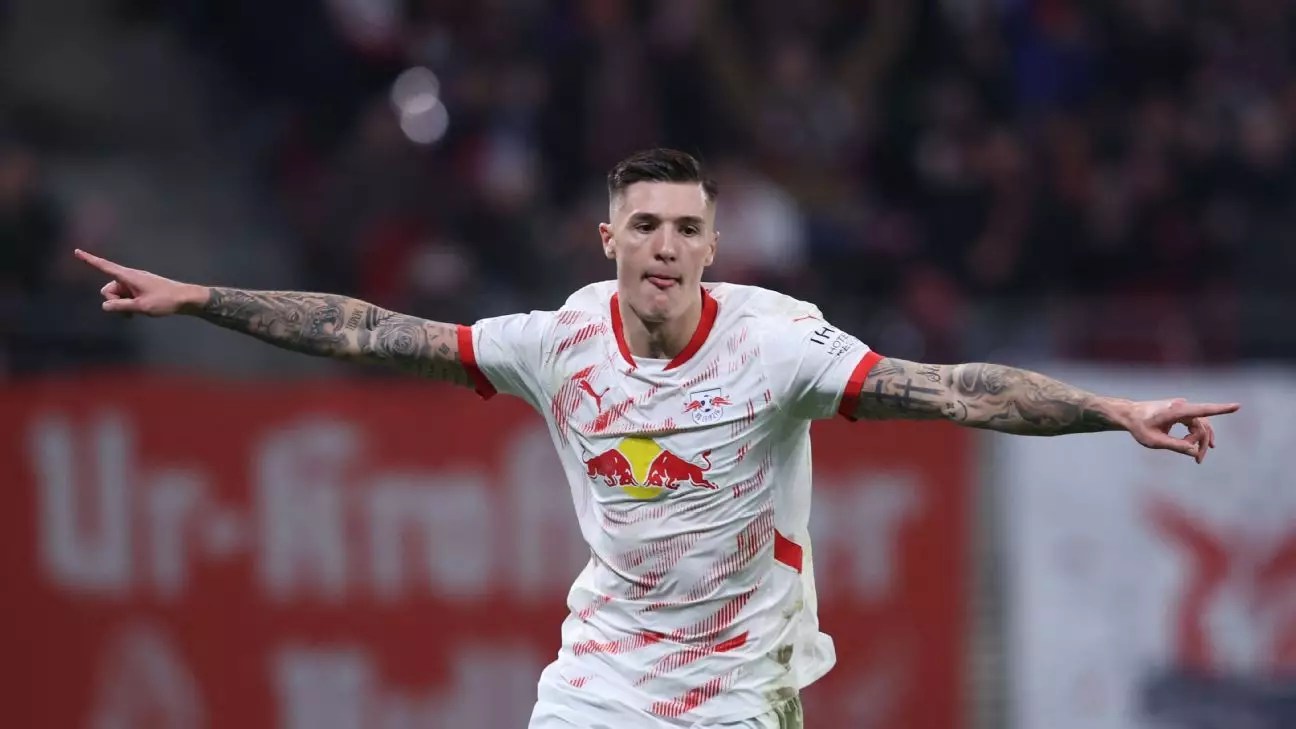In the unfolding saga of football’s transfer season, the pursuit of Benjamin Sesko by top Premier League clubs exemplifies how high-stakes negotiations can shape club futures and redefine competitive dynamics. Manchester United and Newcastle United are not just bidding for a talented striker; they are engaging in a calculated chess match where the outcome could influence the trajectory of their attacking lines for years to come. Both clubs recognize Sesko’s immense potential—his recent exploits at Leipzig show he’s a player on the brink of stardom. Yet, the battle extends beyond mere bidding; it underscores these clubs’ ambitions to assert dominance, especially amidst the unpredictable transfer market volatility.
Newcastle’s eagerness to secure Sesko demonstrates their aggressive approach under new ownership, aiming to solidify their attacking options with a young and promising talent. Their initial bid, though sizable, was swiftly rejected, prompting an improved offer that underscores their seriousness. Conversely, Manchester United’s interest, backed by recent financial flexibility from player sales and clauses, signals their intent to reinforce their squad with a player they see as a future cornerstone. The fact that both clubs are willing to shell out nearly £70 million plus add-ons highlights how striker markets are evolving—once considered less lucrative, now inflated by the Premier League’s financial might and strategic intent.
However, United remains cautious, aware that entering a bidding war could stretch their limited resources too thin. Their confidence in potentially winning the race stems from tactical considerations and the club’s desire to blend experience with youth. The decision to exclude Sesko from Leipzig’s preseason squad signals that negotiations are entering a critical phase. Both parties are acutely aware that this transfer could set a precedent and significantly impact their goals for the upcoming season.
Implications Beyond the Transfer Window: A Shift in Power Dynamics
If Newcastle succeeds in acquiring Sesko, it could have profound consequences for their squad composition and title ambitions. Their plans aren’t limited to just one player; targeting players like Yoane Wissa suggests a broader strategy of strengthening depth and flexibility. The potential sale of Alexander Isak, especially in light of Liverpool’s £110 million bid, adds further complexity. Newcastle’s executives are weighing their options heavily—Isak remains a goal-scorer, but his future is clouded by external offers and internal assessments.
Eddie Howe’s current stance—being “very much removed” from Isak’s transfer saga—indicates a focus on maintaining squad harmony and seizing the right moments. Yet, the internal debate over Isak exemplifies the broader challenge: balancing star power with squad cohesion amid relentless transfer speculation. Newcastle’s ambitions are clear—they aim to maintain their progress, but doing so requires strategic targeting and sometimes difficult decisions.
From an outsider’s perspective, the transfer market this summer appears less about filling holes and more about strategic game-changers designed to shift the balance of power. The potential inflow of young talent like Sesko, combined with the strategic rejection of offers for proven players, reveals a conscious effort to build a sustainable, competitive squad. It’s a play for long-term dominance, not just short-term results.
Emerging Players and the European Transfer Landscape
Meanwhile, Leipzig’s squad is facing ripple effects from these negotiations. Xavi Simons, a key figure in Leipzig’s attacking lineup, remains a hot commodity, with Chelsea reportedly keen but not yet making formal offers. Simons’ impressive stats—11 goals and eight assists last season—have caught the attention of top clubs aiming to reinforce their midfield creativity. Leipzig’s stance of awaiting concrete offers signifies a market where talent valuation is soaring and clubs are willing to move decisively when the right bid emerges.
This scenario underscores a broader trend: clubs are increasingly valuing young, versatile players who can influence the game’s outcome significantly. The European transfer scene is no longer just about buying established stars but about cultivating and acquiring emerging talents who can make instant impacts and retain resale value. Leipzig’s position in this market exemplifies how clubs can leverage rising stars to maximize both performance and financial returns.
The ongoing transfer battles, especially for Benjamin Sesko, highlight a season where strategic ambition, financial power, and youth development collide. Each move isn’t just about immediate needs but also about staking a claim for future dominance in both domestic leagues and European competitions. This transfer window promises to be one of the most exciting and transformative periods in recent football history—one that could reshape club hierarchies and challenge traditional powerhouses to adapt quickly or fall behind.


Leave a Reply